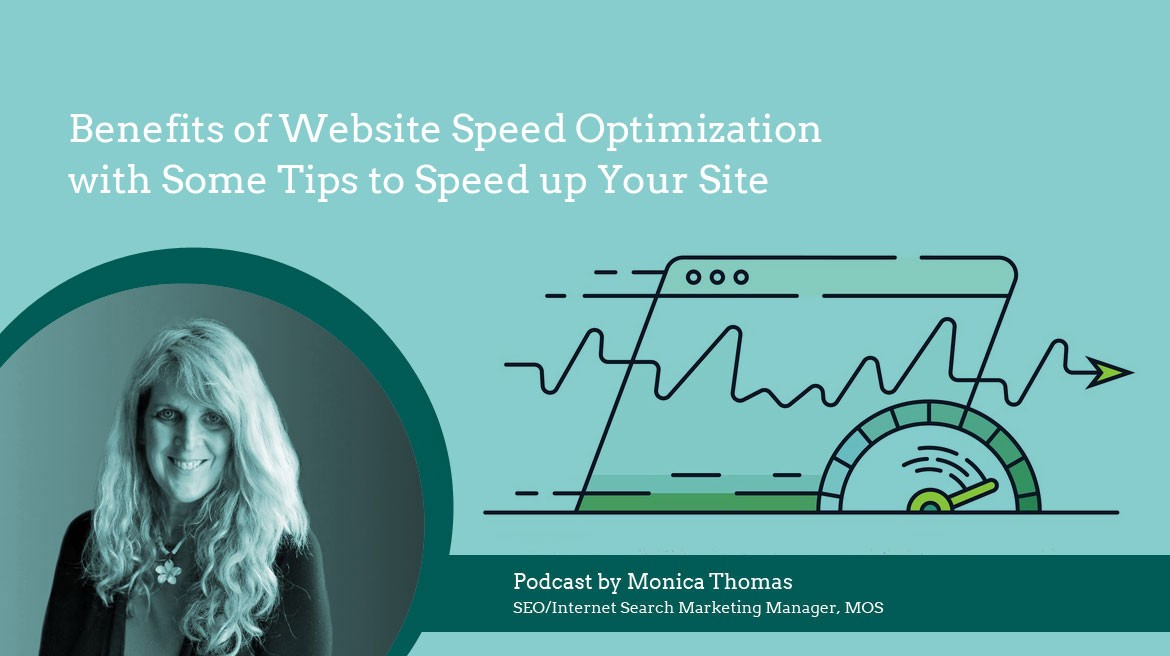This week’s “Five Minute SEO” podcast will cover the “Benefits of Website Speed Optimization with Some Tips to Speed up Your Site”.
Why does the speed of your website matter? Speed is a critical factor when it comes to helping your website rank higher in Google’s search results. If your site is loading slow, it’s very important to diagnose the reason why and fix the issues quickly. Not only will a faster site improve your organic placement but it will also help improve your user’s overall experience.
Listen to the Podcast now!
Read Transcript
Hello –
This is Monica Thomas the Search Marketing/SEO manager for medresponsive.com
Read Transcript
Hello this is Monica Thomas the SEO & Search Marketing Manager for medresponsive.com
This week’s “Five Minute SEO” podcast will cover the “benefits of website speed optimization with some Tips to Speed up Your Site”.
Why does the speed of your website matter? Speed is a critical factor when it comes to helping your website rank higher in Google’s search results. If your site is loading slow, it’s very important to diagnose the reason why and fix the issues quickly. Not only will a faster site improve your organic placement but it will also help improve your user’s overall experience.
In Google’s Page Rank algorithm released in 2010, website and page speed were introduced as important ranking factors for search engine bots to assess and rank websites in their search engine results. From 2016 on, the speed at which mobile pages load became an even more critical factor for Google’s mobile search rankings. This was partially due to the increased desire of users to obtain instant results to queries. Search engine users want websites to open immediately and if a site takes too long to load, they get frustrated and move on to the next one.
The average load time for most sites is over 8 seconds and can even exceed 11 seconds. However, the best-practice benchmark is a load time that is under 3 seconds.
According to a recent article in HostGator, 53% of mobile users will leave a website that takes longer than 3 seconds to load and nearly 10% of web users will bounce after 2 seconds.
Google reports that a 1-second delay in load time will decrease visitors’ satisfaction by 16% and 79% of those visitors would not buy your product or service if not satisfied by your overall website performance. Basically, slow and tedious websites are related to lack of efficiency and will not gain visitors’ trust when it comes to sharing personal and billing information.
Page load time can be improved through a variety of different methods such as:
Researching and understanding page speed optimization and defining the right strategies for improvement can often be tricky and time-consuming. The Tech, Web Design and Search Marketing team here at MedResponsive can help you with any of your page speed, SEO, web design or internet marketing needs. Please contact us via phone or email with any questions. Have a great day or evening! Thank you for listening!

